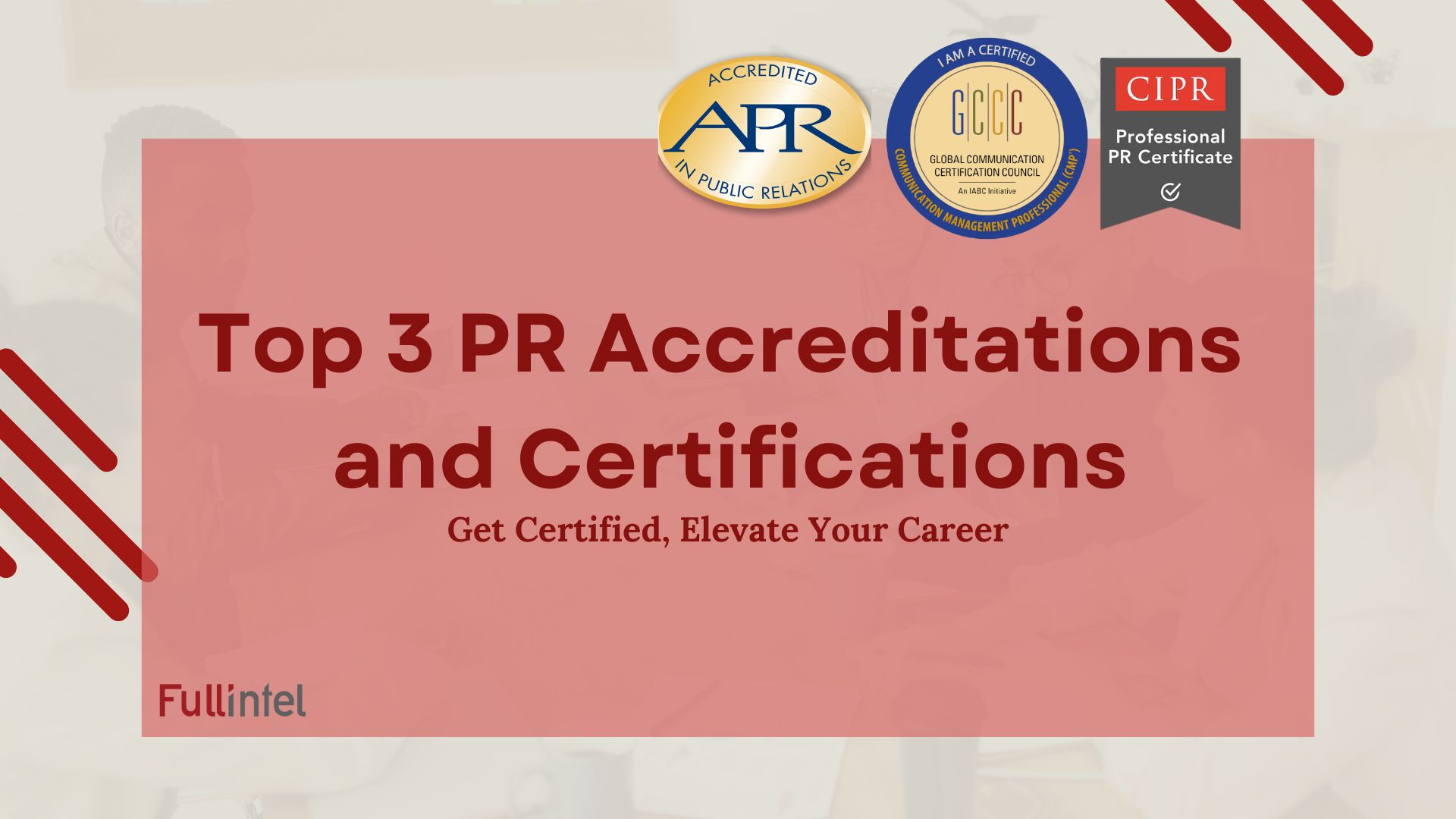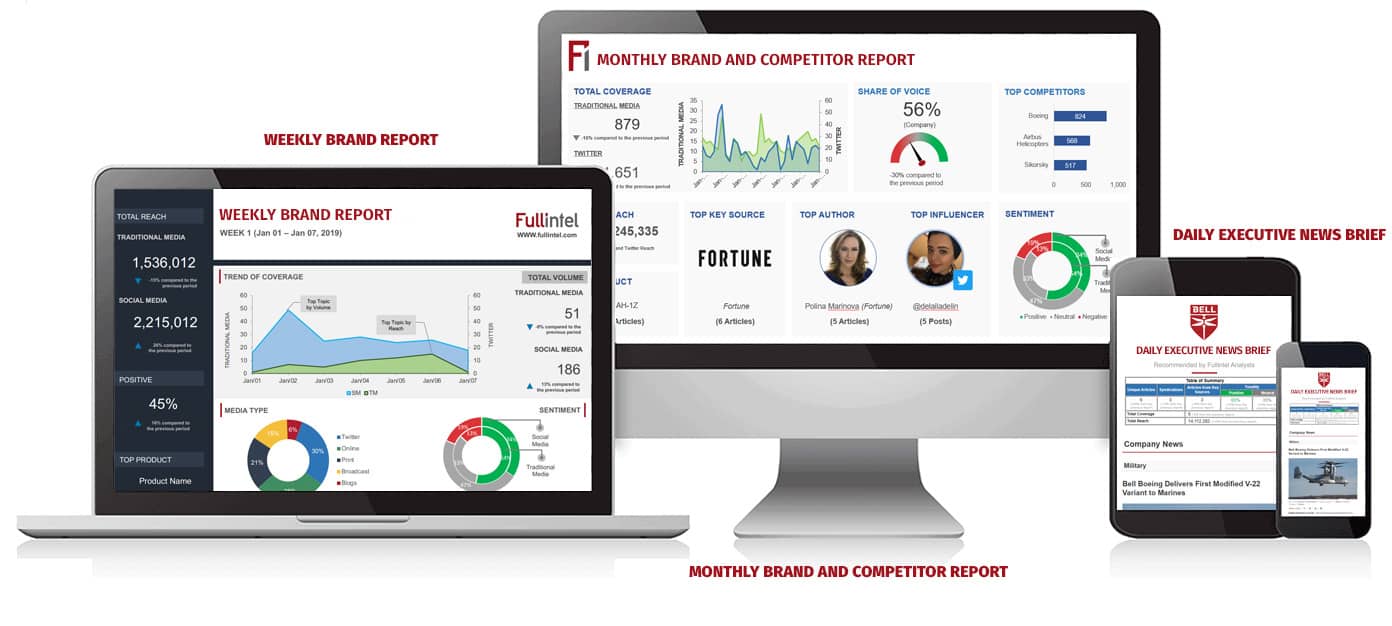
Public relations can be a challenging profession in the current media environment, with the number of media outlets and practicing journalists seemingly fewer by the day.
But the challenges of being an effective PR professional are a big reason why every competitive advantage helps—and why it’s always prudent to consider gaining a PR accreditation or certification from a leading organization.
Below, we’ll show you some of the most valuable PR accreditations and certifications, along with how you can sign up to take the next step in your career.
PR Accreditations and Certifications: Why Bother?
It’s true that some in the industry don’t see the point of paying for a certification, accreditation, or anything else that adds a few extra letters at the end of their email signature.
But many others in the communications world disagree. Communications and PR strategist Jacque Coe says PRSA’s Accreditation in Public Relations (APR) was a “game-changer” in her career.
“It boosted my knowledge and credibility swiftly and significantly—and my salary jumped by 40% in just a couple of years!” she says. “Put simply, the APR just made me more strategic for less than $1,000. So for me, the APR had an amazing ROI.”
Indeed, a PR accreditation or certification can help you:
- Career advancement: Stand out from other practitioners who don’t have the same experience.
- Credibility and trust: The knowledge demonstrated by holding an accreditation can lead to increased credibility and trust in the market.
- Skills enhancement: See how others practice PR strategy, planning, and execution and apply that to your own work. Learn about (and, hopefully, adhere to) PR standardizations.
- Networking opportunities: Most accreditations and certifications are part of a recognized community within the industry, which often comes with networking opportunities and access to industry events.
Considering their professional utility, we’ve gone ahead and broken down five of the most valuable PR accreditations and certifications for you below.
The Top PR Accreditations and Certifications
APR (PRSA)
The most well-known of all PR-related extracurriculars, The Accreditation in Public Relations (APR) offered by the Public Relations Society of America (PRSA) offers unique value to PR professionals that distinguish it from other accreditations or certifications in the field.
The APR offers a broad range of skills necessary for PR professionals, including strategic planning, research, ethics, and campaign management, according to PRSA Chair Joseph Abreu. It goes beyond tactical skills to emphasize strategic thinking and leadership qualities.
Abreu (who holds an APR accreditation himself) says that “While the tangible ROI in terms of salary increase or specific job opportunities can differ depending on the industry, the overall value of APR lies in its ability to enhance competence, credibility and career prospects in public relations.
“Pursuing the APR is a strategic investment in one’s PR career, offering tangible benefits such as enhanced credibility, career advancement opportunities, expanded skill set, and a supportive professional network. It’s a decision that can pay dividends by strengthening one’s expertise and professional standing in the PR industry.”
You can apply for APR here.
CMP and SCMP (IABC/GCCC)
Offered by the International Association of Business Communicators (IABC)’s Global Communication Certification Council (GCCC), the CMP and SCMP are certifications aimed at two distinct groups:
- The Communication Management Professional (CMP) certification is for comms pros at the mid-level stage of their careers (6 to 8 years of experience). It targets either generalists or specialists.
- The Strategic Communication Management Professional (SCMP) is for comms pros at the senior level (8 to 11 years of experience).
GCCC certifications in general meet ISO standards while covering multiple disciplines and competencies. Both CMP and SCMP are Accredited Personnel Certification Programs by the American National Standards Institute (ANSI).
The CMP and SCMP certification programs accept applications on a rolling basis. You can apply for either one here.
Chartered PR Practitioner (CIPR)
PR pros can also receive chartered status by the Chartered Institute for Public Relations (CIPR), a designation that doesn’t just sound fancy: It’s also in keeping with CIPR’s longstanding commitment to continuing professional development, and its goal of building a predominantly chartered public relations profession.
Chartered status is, after all, not unique to PR and is therefore easily understood by others in strategic management disciplines. It’s often considered a mark of trust and can provide parity with other professions.
Fittingly, those who attain chartered status inherently demonstrate their own commitment to keeping pace with evolving best practices in an ever-changing industry.
According to CIPR, Chartered public relations practitioners are entitled to use the designation Chart.PR and a supporting logo. CIPR also offers the Accredited Practitioner designation.
You can learn more about attaining chartered status here.
Conclusion
Which PR accreditation or certification you ultimately choose is up to you, but you can’t really go wrong with any of the options we’ve presented above: They provide PR professionals with near-instant credibility and trust in the marketplace.
And—according to many in the industry—they can also help you advance your career, make better connections, and even make more money and get more clients.
But it’s also important not to just run PR campaigns for those clients without having a strong situational awareness of what’s working and what’s not. That’s why PR professionals globally trust Fullintel as their media monitoring and analysis provider: We can help you measure the effectiveness of your campaigns, media outreach, spokespeople, and any other communications data points you need to measure.


